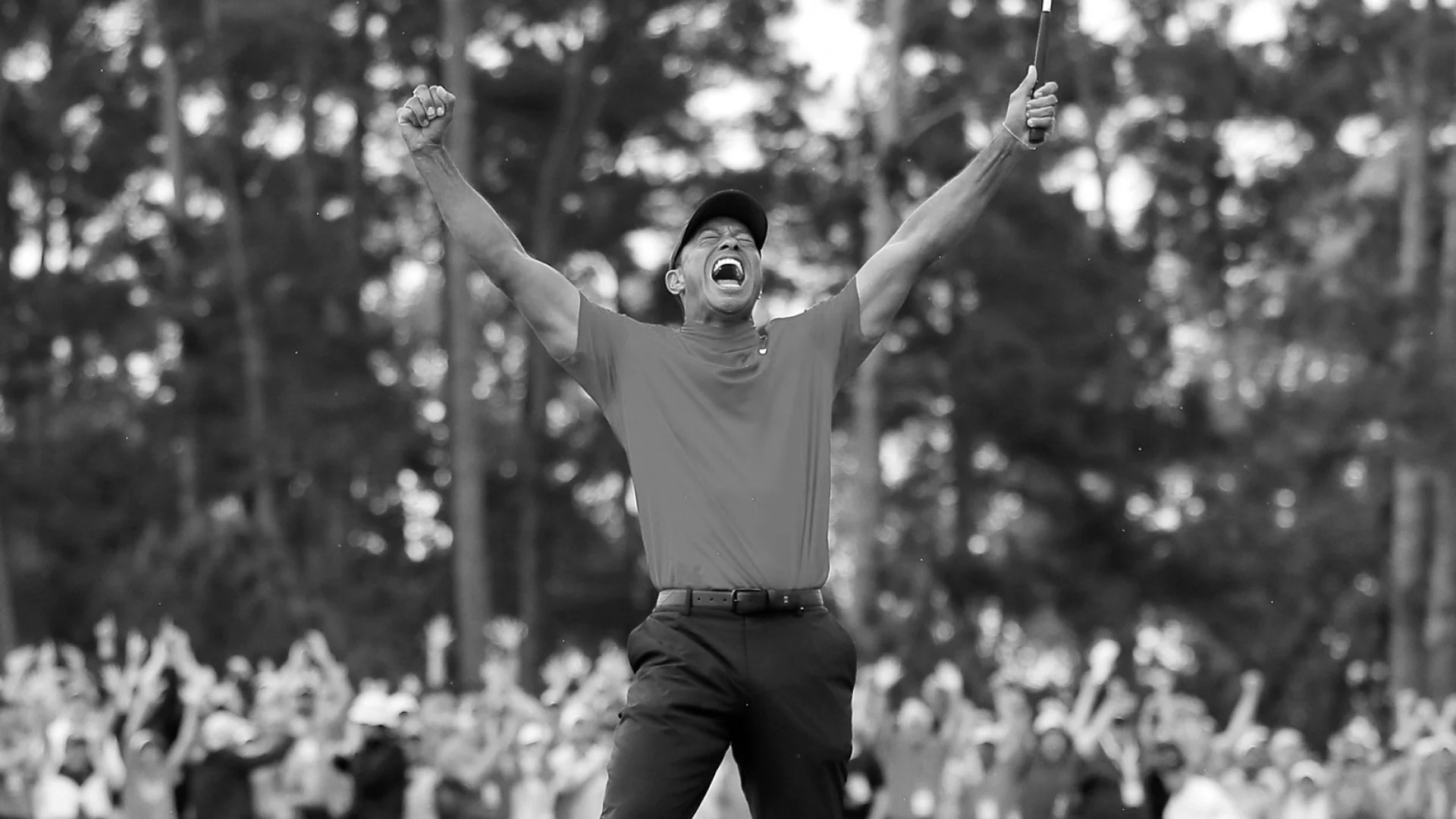Tiger, Easter, and the Roar
On Palm Sunday, 2019, 43-year-old Tiger Woods rose from the dead. The thousands of fortunate onlookers at Augusta National Golf Club parted the ways and chanted his name as he prowled the grounds again. When his final putt dropped, his contagious smile lit the sky and his joyous scream matched his victor’s stance. He bear-hugged his kids, reminisced with reporters, and received his fifth Masters champion’s green jacket, second only to Jack Nicolaus. And for most of the last decade, nobody thought it would ever happen, including Tiger.
Tiger is regarded as one of the greatest golfers of all time, but memories of his domination on the course have been tainted over the last decade by less-than-stellar golf, marital infidelity, divorce, injuries that led to multiple knee and back surgeries, and a DUI resulting from possible addiction to painkillers. He lost fans, endorsements, and confidence. He admits wondering a few years ago if he would ever play golf again, let alone compete with the best in the world, since he could barely walk.
But there he was on championship Sunday, almost 11 years since his last major win, fist-pumping with the patrons and being celebrated by the young guys he just beat, the ones who dreamed of golf careers because of him. Overcoming incredible odds, Tiger let them feel his competitive presence and witness what many call a comeback for the ages.
And the world celebrated.
It was not unlike Easter.
But it was not like it either.
On the original Palm Sunday, Jesus entered Jerusalem. People cheered, and the crowds parted. But within a few days, endorsements were lost, the temperature changed, the cheers became jeers, and the words became, “Crucify him.” And they did. Jesus was truly dead.
And then he wasn’t.
He was standing in the garden, and then on the hill, then along the road, then in the secret room, with a sneaky smile, and the victor’s stance. He may have even fist pumped. He was back. He had won. And a few people cheered.
In our time, some celebrate Easter for the same reasons they celebrated Tiger. They say it was the comeback of the ages. But Easter wasn’t a comeback. At least not for Jesus.
Jesus was injured, terribly so, but he was never behind.
He never failed.
He didn’t need to redeem himself.
If you look at Jesus’s own words, you can see how in control of everything he was, always, all the time, even in his death. He said,
The reason my Father loves me is that I lay down my life—only to take it up again. No one takes it from me, but I lay it down of my own accord. I have authority to lay it down and authority to take it up again.” (John 10:17-18)
There’s a Greek connective word that is translated with a dash and then “only.” The sense is, “in order to,” and that matches Jesus’ teaching elsewhere. He laid his life down with a purpose in mind, “in order to take it up again.” He died intentionally so that he could be our substitute for the payment of sin and so that he could defeat death (Romans 4:25) and offer life to anyone who was willing to follow him (John 10:10).
Jesus died on purpose.
It was a part of the game plan. He needed to die in order to win. He didn’t fail. He wasn’t beaten. He was in control of his game. He was on the prowl, even on the cross and in the grave.
He was winning the whole time.
In sports (and I do think golf is a sport, at least the way Tiger plays), determined athletes often rally after some sort of failure or serious defeat. It’s inspiring.
In Christianity, we are the ones who fail, and none of us can rally. We can’t redeem our own sins and rebellion. We lose control of our lives, and there is no hard-working rehab that will repair us. On the first Palm Sunday, it was all of us who were truly dead in the water, not Jesus.
The Easter resurrection, though critical to the whole game plan and a reflection of what will happen to all believers (1 Corinthians 15:12-28), was more like a victory celebration. It was the final putt that everyone could see. It was the moment when the last score was posted and those who understood stood and roared with delight.
Easter is not a celebration of Jesus as the great comeback kid.
It is a celebration of our Champion completing what was necessary for our comeback.
At a professional tournament, you can hear pockets of applause around the golf course, and you know something special just happened, even though you didn’t see it. Dustin Johnson was the number-one ranked player in the world. He came in second to Tiger at this year’s Masters. As he walked off the course, he said to CBS’s Amanda Baliones, “You could hear the roars, and you can definitely tell the difference between a roar for me or a roar for Tiger.”
On this coming Easter Sunday, I wonder if pockets of Christian people all around the world will remember what Jesus won when he rose from the dead—and we’ll spontaneously stand, maybe even fist pump, and really ROAR!
